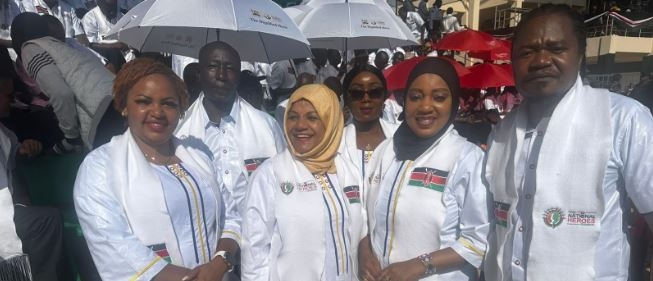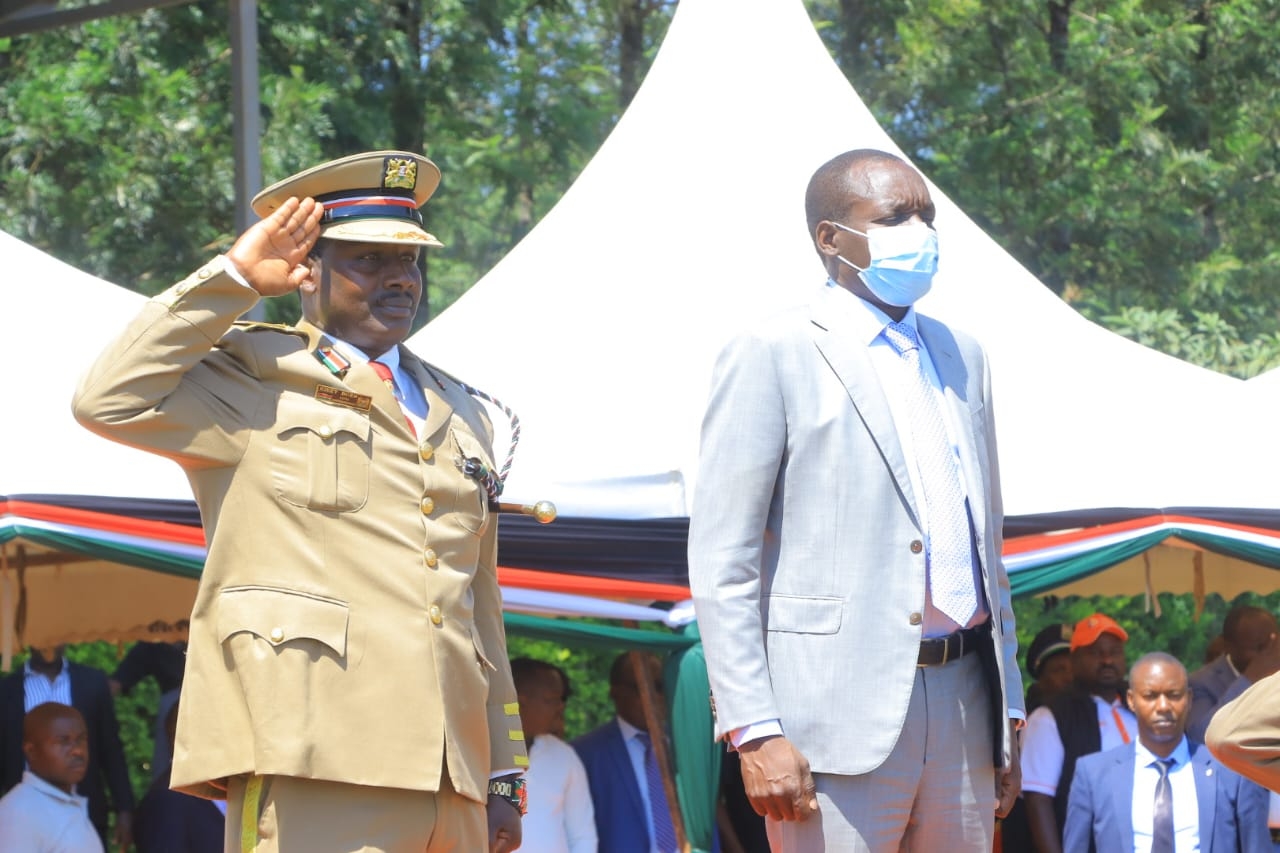Kenyans could be headed to a national referendum before the 2027 election if a number of key proposals to the National Dialogue Committee inform the team’s final recommendation.
The Committee co-chaired by Kikuyu MP Kimani Ichung’wah and former Vice President Kalonzo Musyoka is expected to recommend to Parliament a raft of constitutional amendments and policy shift to deal with perennial post-election crisis.
Several key proposals submitted before the Ichung’wah/Kalozo team would require a public plebiscite for them to be implemented as they engineer constitutional changes that will affect the structure of the government.
Raila Odinga-led Azimio la Umoja has also publicly admitted that a referendum is inevitable and the country should prepare for the exercise.
Speaking when he submitted the coalition position to the dialogue team, Azimio Election Board chairman and former Laikipia Governor Ndiritu Muriithi said Kenyans must be allowed to make decisions on some of the proposals.
“Some of the proposals before this Committee may affect the fundamental articles of the Constitution and may lead to a referendum,” Ndiritu said.
“Majority of the proposal submitted to this Committee shall require legislative processes and /policy guidelines.”
Atop the list of constitutional changes are the proposals to re-introduce the positions of Prime Minister and the Leader of Official Opposition, as well as creation of additional counties.
The proposals got a nearly unanimous backing of the talks team as well as various stakeholders that either appeared before the Dialogue Committee or presented a memorandum.
According to Azimio, the entrenchment of NG-CDF, National Government Affirmative Funds as well as Senate Oversight Funds must also be subjected to the people through a referendum.
Another proposal that will require Kenyans to make a decision on the ballot is whether to tinker with the term limit as submitted by two stakeholders during the Bomas talks.
In the first instance, Nandi Senator Samson Cherargei wants the term limit to be two terms of seven years each.
“I understand the Constitution, my proposal requires a referendum and I want Kenyans to judge my proposal on the ballot during a referendum,” he said.
A group representing a section of residents of Homa Bay county - Homa Bay Interface Community- also called for the Presidential term to be extended to a single term of 10 years.
"For us we want the President to serve for only 10 years and after that, they go home with their deputy," the group led by the secretary general Michael Otieno said.
On Tuesday, 29 MPs behind the push for 11 more counties argued their case for additional units before the National Dialogue Committee at Bomas of Kenya.
Led by Kuria East MP Marwa Kitayama and his Suba South counterpart Caroli Omondi, the MPs said the 2012 delimitation that followed the colonial 47 counties was a raw deal to a number of indigenous minority communities who have no say on the day-to-day running of the devolved units.
Even though they argue the entrenchment of the new units requires no referendum, a number of law scholars however think otherwise.
“We acknowledge Article 181 (1), which stipulates the process of altering county boundaries, involving an independent commission set up by Parliament and the support of at least two-thirds of members in both the National Assembly and the Senate,” Caroli said.
The referendum push will however not be without roadblocks as a section of Ruto men are not keen on taking the country along the divisive path before the 2027 polls.
In their thinking, having a referendum will be like an early contest between the President and Raila who are widely expected to lock horns again in 2027.
Pundits argue that despite the exercise highly polarising, if the President side loses the outcome, then it will be injurious to his 2027 re-election.
A similar situation that happened during the President Mwai Kibaki's time when he lost the 2005 referendum to the opposition, a development that led the disputed 2007 general election.
Leaders from Ruto’s Mt Kenya region have also expressed strong objection to a political process that will lead the country into a referendum.
Speaking to the Star, Kiambu Senator Karungo Thang’wa said Kenyans do not want a referendum and all focus should be channelled to revival of the economy.
“I don’t think Kenyans should be subjected to a referendum, at a time like this our focus should be to stabilise the economy and deliver on our pledges, ” Thang’wa told the Star.
The committee is expected to convene at Bomas of Kenya on Friday to draw a road map as it chart way forward.
The committee will then retreat to write its report and hand over to the two principals as well as to Parliament.
To dodge the referendum route, Ruto could leverage on a proviso in the framework agreement that any contentious issues arising from the ongoing talks between the ruling Kenya Kwanza and the opposition will be decided by Parliament.
The agreement adopted by both sides of the political divide gives Parliament the last say on the report of the 10-member committee, especially on areas where there is no consensus.
This means President William Ruto could still use his parliamentary majority to bulldoze his way to the disadvantage of the Opposition chief Raila 's Azimio brigade.
“Where the committee reaches a consensus on an issue in consultation with the coalition structures, the relevant part of the final report and proposals shall be ring fenced from amendment,” the agreement states.
“The final and the proposals of the committee shall contain a list of agreed issues and those not agreed upon.”
Kenya Kwanza currently enjoys a near super majority in the both Houses of Parliament and can easily mobilise to amend the report in their own fashion.












